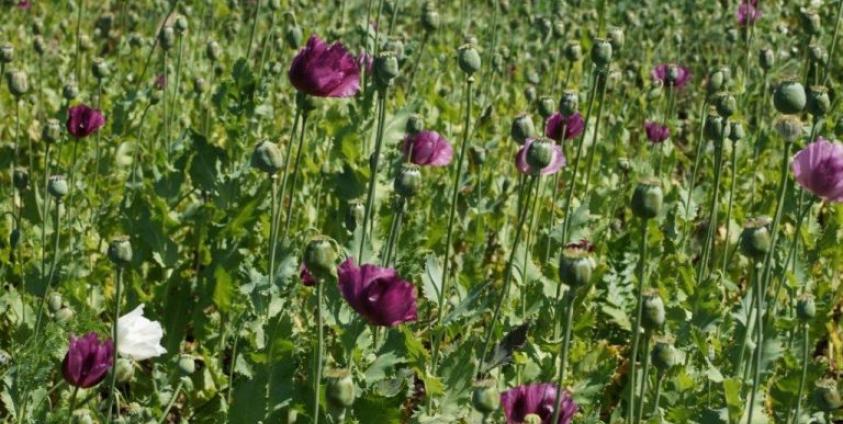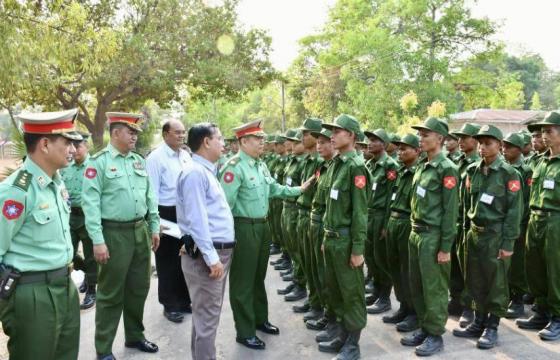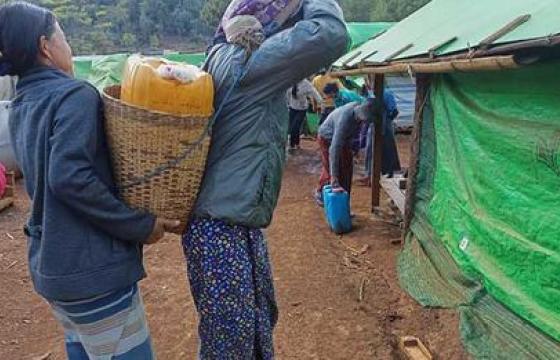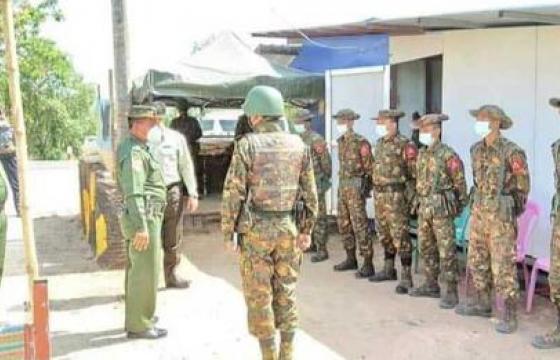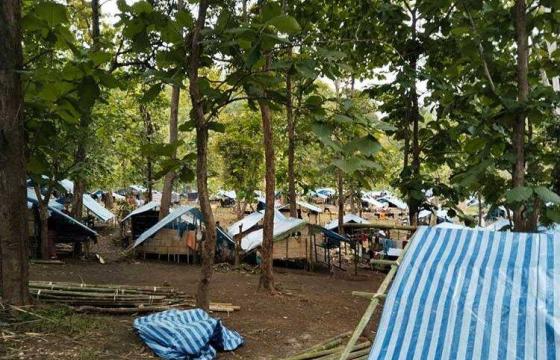The KIO says there is double the opium being cultivated in Kachin State than what the UNODC reported—and that it is happening in areas controlled by the military.
Of the more than 10,000 hectares of opium poppy plantations in Kachin and northern Shan States, the Kachin Independence Organization’s (KIO) Drug Eradication Committee has asserted that most of this is occurring on land controlled by the Burma Army and its proxies.
According to KIO’s drug report released on June 26, there are 6,918 hectares of opium poppies in Kachin State and 3,192 hectares in northern Shan State, largely in Sadon, Tanai, Shin Bwi Yang, Kanpaiti, Putao and Sumprabum. They added that drugs were being sold openly and with impunity in the mines of Hpakant and Tanai.
These figures would make the area of poppy cultivation double what was previously reported in January by the UN Office on Drugs and Crime (UNODC)’s Myanmar Opium Survey from data dating back to 2018. It said that the highest rates of poppy cultivation were in the Sadon and Tanai areas.
The UNODC reported “Myanmar Opium Survey 2018” on 11 Jan 2019. The UNODC’s drug report said that opium poppy cultivation increased in the area under the control of KIO. According to the UNODC’s drug report, the highest poppy cultivation areas are in Sadon and Tanai.
However, the UNODC attributed the different figures to different methods and timeframes of data collection, in an official response to the report issued on June 27.
“Discrepancy between the surveys is exactly why an independent and peer reviewed UN survey is needed,” the UNODC’s statement said.
Col Naw Bu of the KIO’s information department acknowledged that the UNODC collected data from 2012-2018, while the KIO collected in their statistics from late 2018-2019.
While the KIO does not wish to give official comment on the UNODC’s original drug report, Col Naw Bu said that it was possible to “compare the differences in the reports,” and that they published their own report because they wanted the public, the government and the international community to know the actual severity of the drug problem on the ground.
“The objective of publishing the drug report is that we want to get correct facts and data to seek a solution for solving the drug problem, and for people and the international community to cooperate with us toward drug eradication,” Col. Naw Bu said.
Another discrepancy was that the UNODC’s drug report alleged that opium poppy cultivation was heavily concentrated in areas controlled by ethnic armed organizations (EAOs), while the KIO’s drug report said that that poppies were mostly being grown in areas controlled by the Tatmadaw, its Border Guard Force, and military-backed People’s Militia Forces (PMFs). It named the PMFs involved as Pang Say, Kawng Hkar, Long Htan, Shouk Haw, Kon Long, Mongsi, and Tangyan.
Brig-Gen Zaw Min Tun, secretary of the Tatmadaw’s True News Information Team, told media that the army has operated anti-narcotics activities since 1975 and denied that any opium cultivation was occurring in areas controlled by the military. He acknowledged that PMFs might be growing opium, but attributed this to alleged links to EAOs.
Col Naw Bu said that because of statements like this, it is better for external agencies “not to use the government’s data” in assessing the opium problem in Burma.
“It’s better not to use the data of the Burmese government. It’s because opium poppy cultivation and drug production are located in the areas under the control of army, PMFs and the BGF. We cannot fully accept the data and facts documented by the UNODC because they have used data and facts collected by government,” Col Naw Bu told NMG.
He went on to clarify that the KIO’s report was not intended to place blame on anyone—the army, the government or the UNODC.
“They need to form a commission and need to survey the ground level situation. Our report already suggested that we need cooperation between all stakeholders to eradicate narcotics. It will be better for our country,” Col Naw Bu said.

